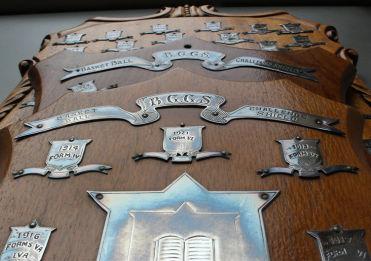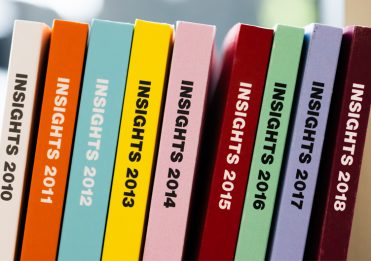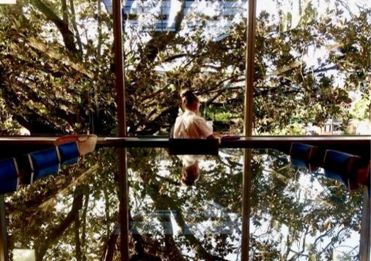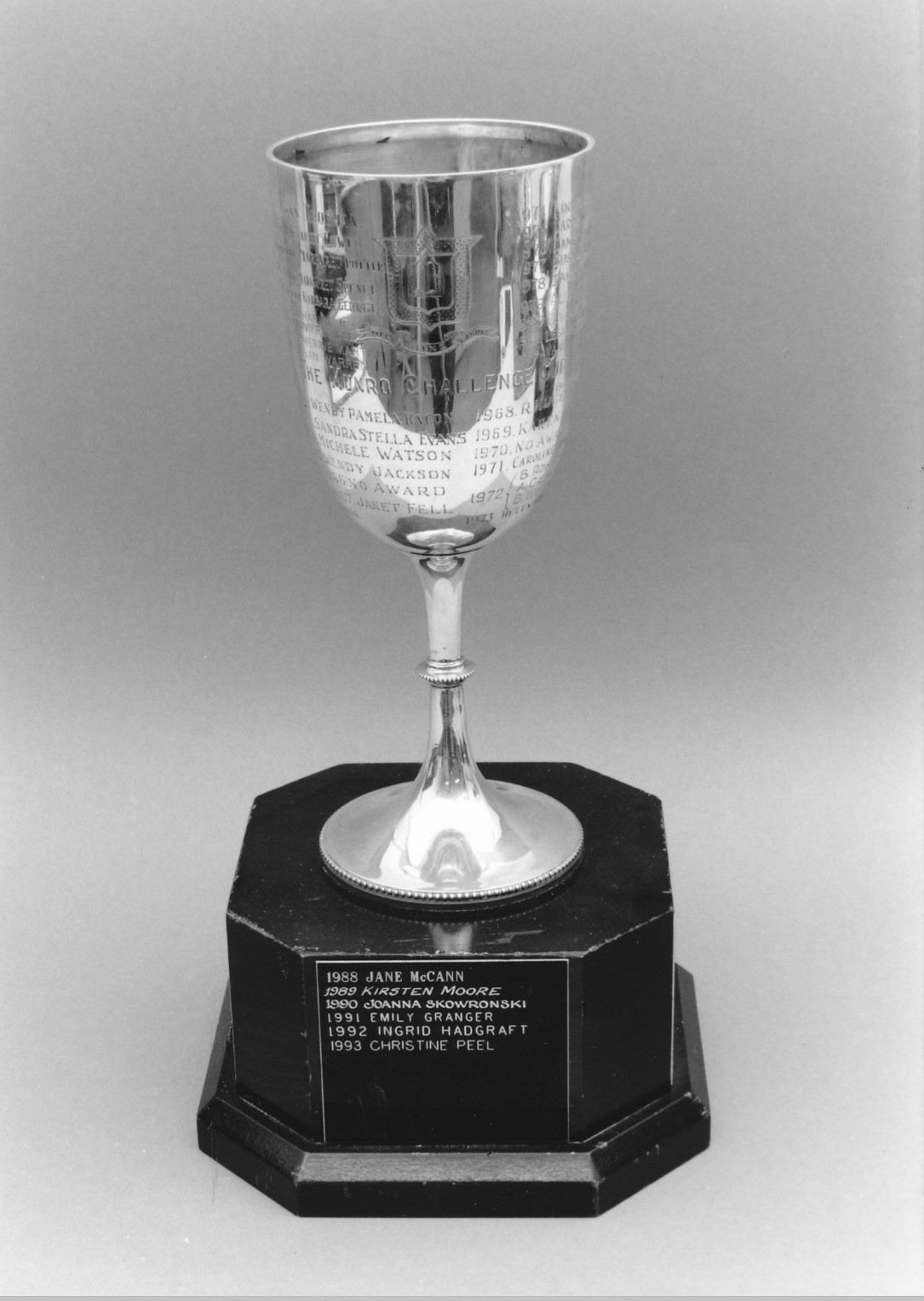
The Munro Challenge Cup
Awards of this nature, recognising community spirit and a focus outside oneself, always seemed the more valuable to me. I think this award influenced my willingness to keep doing whatever it was I was doing to earn such recognition. It most certainly encouraged me to try to carry forward the enthusiasm I felt for the school, its activities, and its people, and to apply it to life after school.
Thus, Caroline Mercer (Cavaye, 1971) captures the essence of the purpose of awards such as the Munro Challenge Cup presented on Speech Day. Who donated this cup whose criteria capture the characteristics of the all-round Grammar girl? How long has it been presented? Is it valued as it should be?
It can be argued that the Munro Challenge Cup is regarded as one of the top three most prestigious awards presented on Speech Day. Many believe it sits with the Lady Lilley Gold Medal for Dux and the Ida Woolcock Challenge Cup because of its elevated criteria of the best all-round girl in work, sport, and public spirit from either Year 10, 11, or 12.
In 1929, Mrs Mary Alison Miles Munro, mother of Head Girl, Helena Mary (1928) and Jessie Ruth (1929) donated the trophy and stipulated the criteria as
Open to VI, V, and IV Forms. Best all round girl in work, sport, and Public Spirit. Judged by the Head Mistress and Staff.
Donor—Mrs E. Munro—1929
Mary Alison Miles Hunter was a well-educated woman, who had graduated from the University of Sydney in 1895 with a Bachelor of Arts degree, with first class honours in French, second class honours in German, and third-class honours in History. In 1911, she was admitted as a graduate ad eundem gradum of The University of Queensland. Mary married Simon Edwin Munro in 1910 and had two daughters, Helena Mary born in 1912 and Jessie Ruth in 1915.
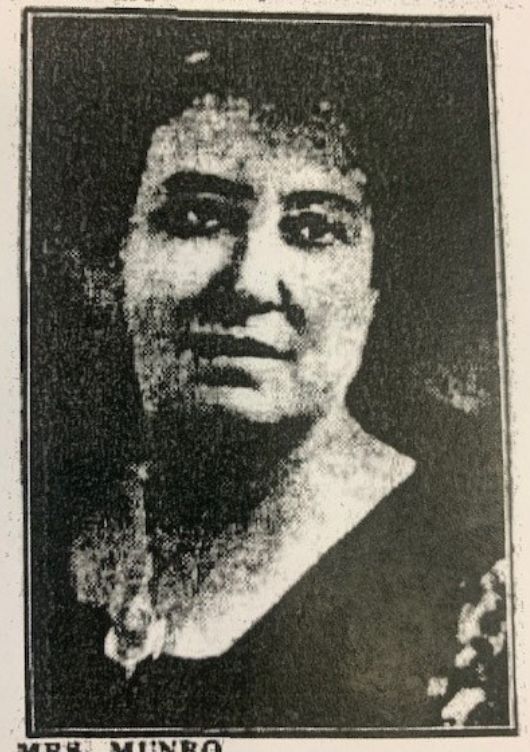
The Courier Mail, 4 December 1934 p18, Mrs Mary Alison Miles Munro.
A firm believer in education for women, her daughters attended Brisbane Girls Grammar School where Helena was Head Girl in 1928, and her younger sister, Ruth, graduated in 1929. Mary Munro’s enthusiasm for learning was apparent in many aspects of her life. Most public was her support, and subsequent presidency, of the Lyceum Club in Brisbane. This club was established in 1919 by ‘a group of professional women to share and develop their interests in art, literature, music, science, education, journalism and current affairs’.
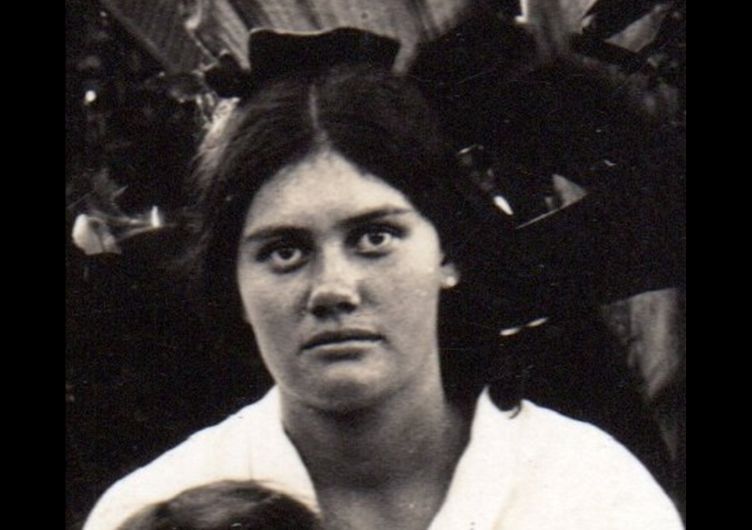
Helena Munro (1928)
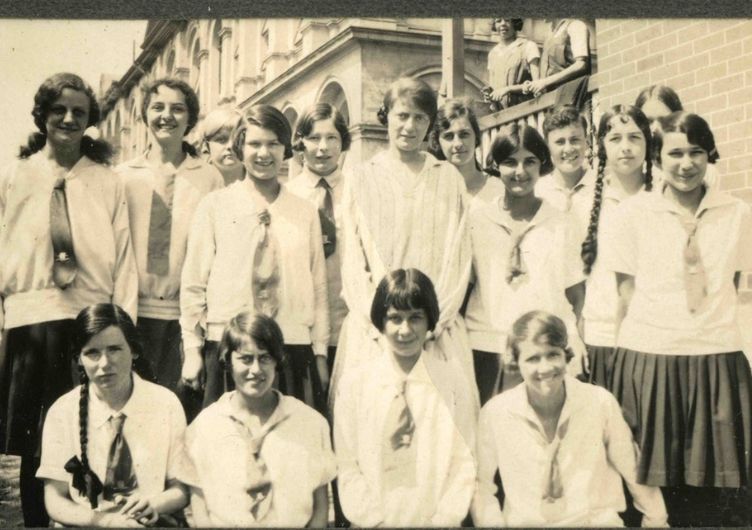
1929 Sixth Form which includes an unidentified Ruth Munro.
Mrs Munro’s enthusiasm for learning and the all-round citizen was also illustrated by her support for a school pool in 1924, where she was mentioned in the Acting Head Mistress’s Annual Report which stated that ‘… hope springs anew in our hearts that we too, if we exert ourselves sufficiently, may be able to raise the necessary money to build ourselves a Swimming Pool. That hope has been strengthened by the very generous offer by Mrs E Munro to give us the first £10 towards the Fund’.
In 1928, the Ida Woolcock Challenge Cup was donated by Mr Justice John Woolcock, Chair of Trustees, in honour of his wife, Ida Woolcock. This trophy was for the student who demonstrated the best public spirit of a schoolgirl and was voted for by the students. Mrs Munro, the following year, donated her trophy, adding two more key elements to this criterion and thus created a trophy that acknowledged the all-round Grammar girl and future good citizen.
Her impact at the School, as well as an identity in the Brisbane community, must have been considerable as, in the year of her passing, a commemoration was included in the 1934 School magazine.

Notice in 1934 magazine, p53.
The Munro Challenge Cup was designated in the Special Prizes section of awards on Speech Day as The Munro Challenge Cup (presented by Mrs E Munro) and post her death, was referred to as The Munro Challenge Cup (presented by the late Mrs E Munro). In 1954, this detail was dropped from the prize list and the trophy referred to as simply—Munro Cup. In 1979, the detail of the Munro Cup was once again included in the Prize List program; however, the wording suggested that the trophy was presented in memory of Mrs Munro—an obvious misinterpretation.
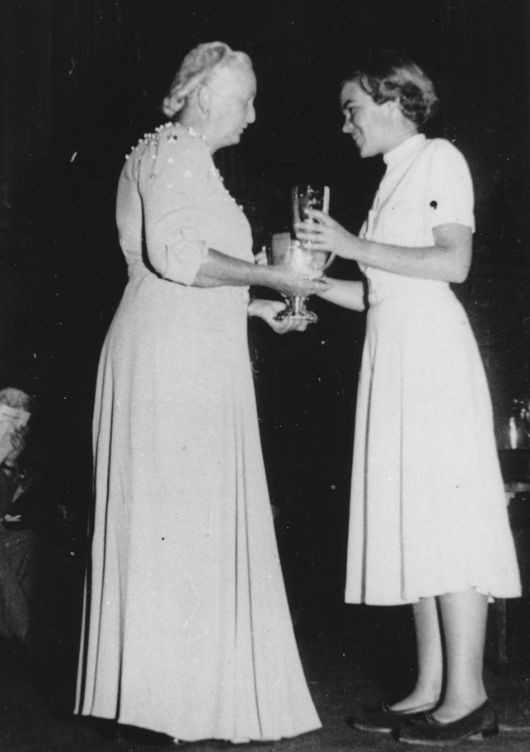
1952 Maureen O'Connell, Head Girl, receives the Munro Challenge Cup and the Ida Woolcock Challenge Cup from Miss Kathleen Lilley on Speech Night.
This trophy will celebrate its 94th anniversary at the 2023 Speech Day and Prize Giving. Since its first presentation, 96 young women have been the recipients of this outstanding trophy, including one of the School’s Rhodes Scholars, Beth Woods (1972). Only two students have received the award twice—Hazel Muirhead (1929 and 1931) and Beth Beeston (1932 and 1933). Strangely, the Munro Cup was not awarded in 1966 and 1970.
Rarely has the cup been awarded to a student not in Year 12. Both double recipients were Head Girls in their final year. Indeed, twenty-five Head Girls have been the recipients across these years and thirteen outstanding girls have won both the Ida Woolcock Challenge Cup and the Munro Challenge Cup, with only three students not being Head Girls. These students are Gladys Goodall (1938), Kirsten Moore (1989), and Ingrid Hadgraft (1992).
Three sets of sisters have been awarded the Munro Cup: Janet and Katherine Jeays (1978 and 1982); Christine and Trisha Peel (1993 and 1995); and Sophie and Rachel Ferris (2000 and 2006) respectively. A most significant family connection is the only mother/daughter recipients: Caroline Mercer (Cavaye, 1971) and Alexandra Mercer (2004).
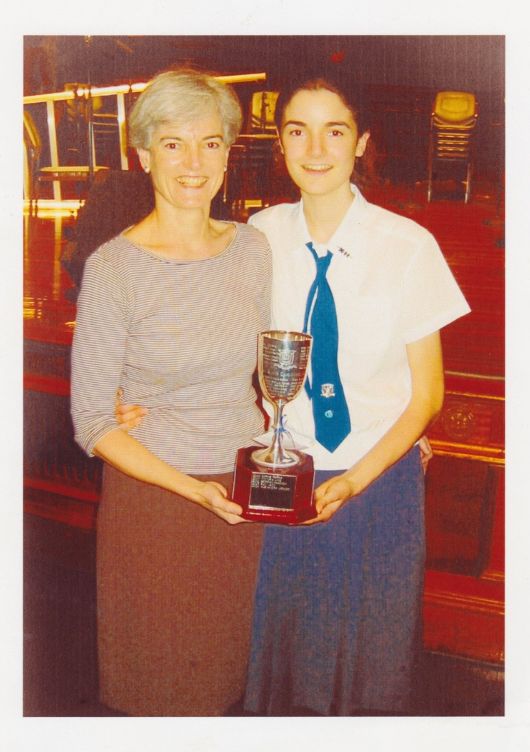
2004 Caroline Mercer (Covaye, 1971) with daughter, Alexandra at Speech Day with the Munro Challenge Cup.
When analysing the significance of this award to the recipients and justifying the award being classed in the top echelon of Girls Grammar prizes, Alexandra Mercer’s words resonate.
I think in an environment like Grammar, where the standards can be very high, it is important to acknowledge young women who put effort into developing the full spectrum of their abilities, including … those areas where they may not naturally excel (or immediately be “the best”).
‘This is the attitude I tried to have while at Grammar (I may not have been a particularly talented runner, for example, but I loved running together with the other girls and I did work hard at it) and receiving this award at Speech Day felt like an encouraging voice saying, “yes, having that approach to life matters”.
By donating this award to the School, Mrs Mary Alison Miles Munro captured the essence of the all-round Grammar girl. She set the bar high, celebrating the balanced and multi-talented young women the School seeks to support. Celebrating the characteristics of resilience, lifelong learning, service, commitment, and determination is a worthy aspiration and sits well with the School motto of Nil sine labore.
Pauline Harvey-Short (1971)
Manager, School History and Culture
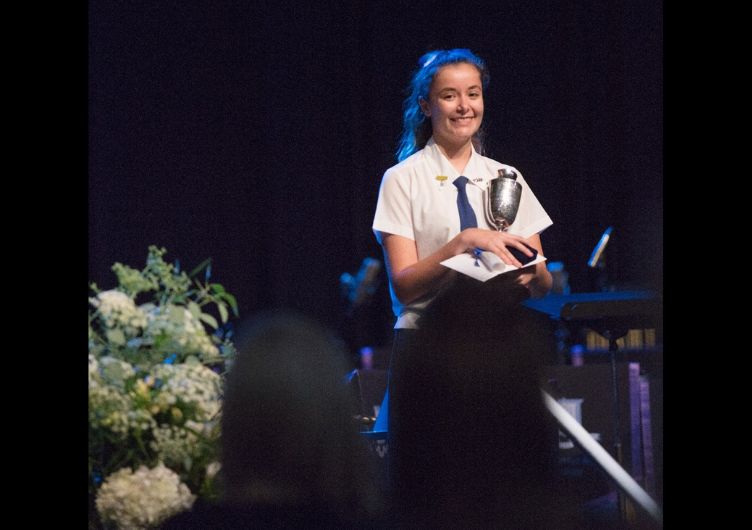
2020 Matina Samios receiving multiple prizes including the Munro Challenge Cup and the Lady Lilley Gold Medal for Dux.
References
1929, The Brisbane Courier, 6 December, p24
1936, The Telegraph, 3 December.
1934, The Courier-Mail, 4 December, p18.
1936, The Courier-Mail, 10 January, p15.
1936, The Telegraph, 4 July, p15.
1936, The Evening News, Rockhampton,6 July, p6.
1941, The Courier-Mail, 28 June, p4.
BGGS Annual Reports 1924, 1929 – 2022
BGGS Magazine 1928, 1929, 1934.
Email from Caroline Mercer, 12.04.23
Email from Karen Byth Wilson, 15.04.23
Email from Susan Byth, 24.04.23
Email from Alexandra Mercer, 01.05.23
Email from Anne Ingram, 02.05.23
Lyceum Club Brisbane Incorporated https://www.lyceumbrisbane.org.au/ downloaded 03.05.23
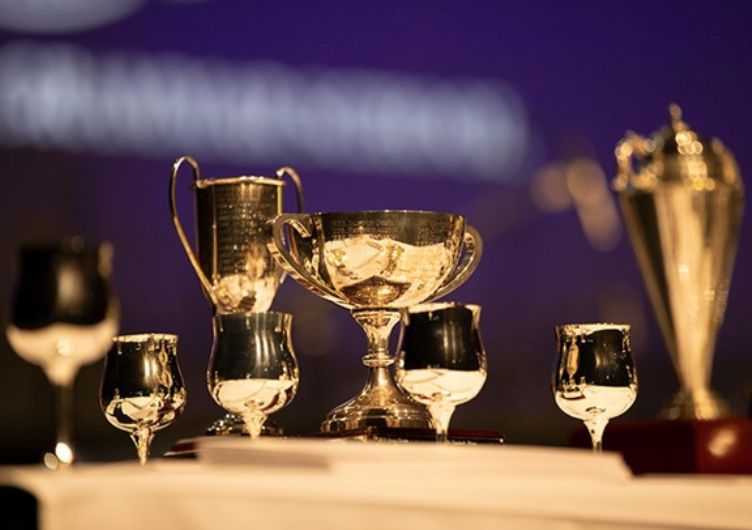
2021 Speech Day.


